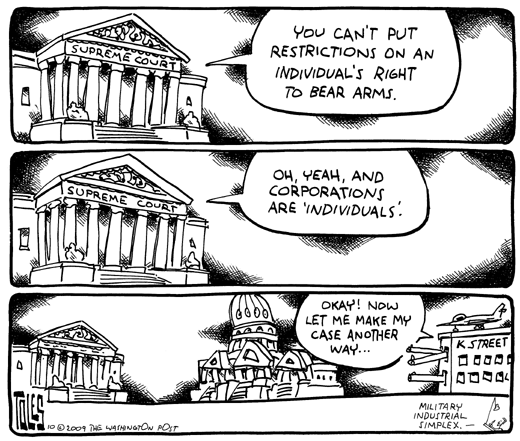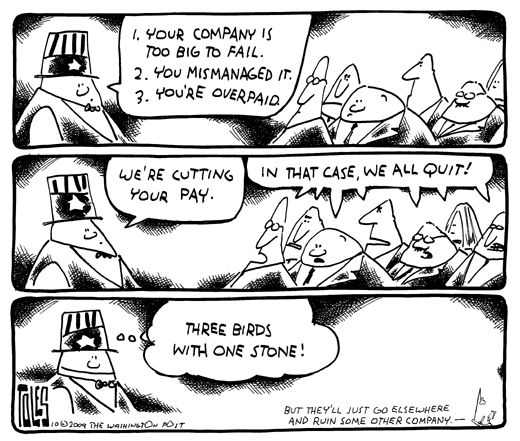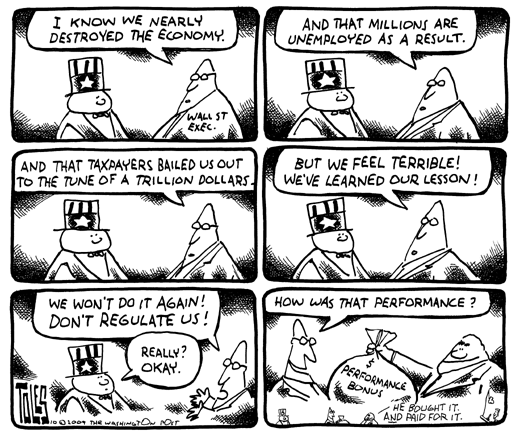|
current posts | more recent posts | earlier posts Because all studies say pretty much the same thing...and corrupt politicians chug along doing the opposite. Of course academics often speak softly.
Investments in Pharmaceuticals Before and After TRIPS
by Margaret Kyle, Anita McGahan - #15468 (HE ITI PR)
Abstract:
We examine the relationship between patent protection for
pharmaceuticals and investment in development of new drugs. Patent
protection has increased around the world as a consequence of the
TRIPS Agreement, which specifies minimum levels of intellectual
property protection for members of the World Trade Organization. It
is generally argued that patents are critical for pharmaceutical
research efforts, and so greater patent protection in developing and
least-developed countries might result in greater effort by
pharmaceutical firms to develop drugs that are especially needed in
those countries. Since patents also have the potential to reduce
access to treatments through higher prices, it is imperative to
assess whether the benefits of increased incentives have materialized
in research on diseases that particularly affect the poor. We find
that patent protection is associated with increases in research and
development (R&D) effort when adopted in high income countries.
However, the introduction of patents in developing countries has not
been followed by greater investment. Particularly for diseases that
primarily affect the poorest countries, our results suggest that
alternative mechanisms for inducing R&D may be more appropriate than
patents.
http://papers.nber.org/papers/W15468
[Posted at 11/02/2009 04:12 AM by David K. Levine on Patents (General)  comments(3)] comments(3)] [Posted at 10/25/2009 10:15 PM by John T Bennett on Financial Crisis  comments(3)] comments(3)] [Posted at 10/19/2009 07:38 AM by John T Bennett on Financial Crisis  comments(1)] comments(1)] One of the most interesting things about patents is that many entrepreneurs I have talked to are unenthusiastic about them. You can make money by creating a product, building a business and developing customers. Or you can spend your time in court trying to grab money from someone else. Successful entrepreneurs tend to do the former. Richard Corsale is an entrepreneur, and writes to us his views about patents. His career titles include: software developer, project manager, CIO, CTO and CEO and Sandwich Artist. He is currently launching an Open Source software company with a value added business model. The concept centers around IP that is placed in the public domain (tofui.com). He is considering producing a mini-documentary about the launch of tofui and other companies that are embracing alternative business models.
Richard says: I have been an entrepreneur for as long as I can remember. I generally believe that whats good for the ecoystem of an industry is good for everyone in that industry. I view a robust public domain as crucial for intellectual advancement and cultural identity. Politically I suppose I lean left on social issues and center/right on fiscal policy.
He submits the following remarks about software patents:
Five Reasons the US Supreme Court should explicitly deny patent protection to software.
1. Software is simply a solution to a problem. Patenting the solution is pointless since it is protected under copyright. So what we end up with are patents that cover a conceived problem. Of course the problem does not exist until it is conceived, and thus it is abstract. Abstract ideas are not patentable subject matter and neither are algorithmic solutions. Software patents have nothing to do with software, rather with the purely imaginary problems that they solve. What we are left with is technical process or method patents. I will refer to these as Software patents throughout this document since that is what they were originally billed as. Applying exclusivity to a process (regardless of whether it involves a computer or not) is tantamount to oppressing creative freedoms.
2. The arguments in favor of software patents are based on a series of assumptions regarding innovation that do not translate to modern, digitally creative arts. Innovation in technology companies that are effected by such patents obviously do not require industrial infrastructure to acquire market share. Their goods and services are essentially inexhaustible. Patent protection was intended (in spirit) to grant a "head start" to inventors so that they might establish market presence on their own inventions, before having to compete with established companies with an existing industrial infrastructure; thus ensuring the incentives of upward mobility. The alternative was thought to be losing domestic markets to foreign sources. If this reminds you of the horse and buggy then you see where I am going with this. Today's technology juggernauts started in garages without patent protection and most are less than a decade old. Patents have in fact, hindered innovation through rent-seeking. For example: MySpace and Facebook both developed without the protection of patents. Both are constantly assaulted with multiple concept patents from companies that innovated nothing. Essentially the industry has enormous incentive to innovate without patents. The situation is analogous to an arms race and oneupmanship is the rule. Software protections are absolutely unnecessary.
3. The people filing amicus briefs on concering software patents are primarily people and organizations that benefit from monopolies on ideas. The reason that Microsoft, IBM and other patent laden Goliaths expect to benefit from patent protection on software is obvious. However Bill Gates famously said: "If people had understood how patents would be granted when most of today's ideas were invented, and had taken out patents, the industry would be at a complete standstill today....The solution to this is patent exchanges with large companies and patenting as much as we can." Others that argue reap the benefit of software patents through "donations," licenses or litigation fees. If you want to know how innovation is really effected, ask software engineers and startups what they think. With assured anonymity they would provide honest unbiased feedback without fear of legal retaliation. They usually side with common sense rather than special interests.
4. The length of time that software patents remain valid render them oppressive. By granting a twenty year monopoly to companies in an ecosystem where consolidation is the rule, you are ensuring that the top 1% of tech companies will hold the vast majority of the IP in the industry. This means that the state reinforces corporate monopolies with state granted monopolies furthering their power to crush opposition. How does that foster innovation? I do not think this point needs to be expounded upon. It is just common sense. The U.S. Constitution never envisioned a scenario where someone could simply imagine the future and stake a claim on it without action or liability of failure. Then as happens now upon either success or failure (through acquisition or bankruptcy or liquidation) the inventor's intellectual assets wind up in the hands of the very companies that they were intended to protect against.
5. One point that makes most proponents of software patents cringe is the international enforcement of software patents. It is impossible, impractical and unethical to deny countries access to concepts that are standards of modern computing. The patents that are filed in the US are generally considered to be ludicrous and overly obvious by the international patent community. There will be no global consensus on software patents anytime soon if ever. Quality standards in nations that have allowed software patents vary greatly and are difficult to enforce even within the EU. At the end of the day it comes down to this: one person or company on the planet Earth owns the exclusive rights to a concept. They then attempt to divert revenue from companies around the world into their coffers. This is obviously not going to benefit countries that are charged with enforcement. Developing countries with little IP have no incentive whatsoever to render verdicts favorable to foreign companies that lay claim to broad concepts. International enforcement of idea patents is pure fantasy. What we are really left with is a massive disadvantage for tech companies in the US. If you want to see this in practice print out ten random technical process patents. Now imagine that you are presiding over an infringement hearing on these patents one at a time. Most would be eliminated in US courts, but presume that you are in a country with no laws to cover patentable concepts (most expressly prohibit idea patents) and see how many you find in favor of.
In closing I would like to point out that if you affirm software/technical processes as patentable a firestorm of litigation will ensue, resulting in a massive and unjust transfer of resources. The resulting effect on innovation in the US would lead to the inevitable question: Why would we expose our company to the risk of crushing litigation in the United States when our markets are just as accessible through the Internet? [Posted at 10/13/2009 01:33 PM by David K. Levine on Innovation  comments(7)] comments(7)] Another failed attempt to suppress free speech using copyright law. Notice that this is only a partially failed attempt - if you read down to the bottom of the article, you will find that some ISPs caved to the DMCA notice. [Posted at 10/07/2009 06:46 AM by David K. Levine on Fair Use  comments(1)] comments(1)] One of the big problems with monopoly is the corruption involved. John's post about campaign contributions by corporations - I'm not sure that banning them is really effective though - reminds us that one of the problems is that the monopolization of government power through bribery helps sustains those monopolies. It's also true that monopolies have strong economic incentive for "marketing" including bribing those who are responsible for the welfare of others. Case in point - the pharmaceutical companies bribery of doctors to get them to prescribe their patented products. Why don't book publishers bribe professors to assign their books to their students? It seems they do. [Posted at 10/07/2009 05:38 AM by David K. Levine on Intellectual Monopoly  comments(2)] comments(2)] via Robert Levine an article in the New York Times Sunday Book Review that he professes to be sympathetic to. The point of the article is that authors have some sort of intrinsic right to any value generated by their work, and whether or not they try to claim it, it is our duty as a society to make sure they (or more likely their heirs) get it...
Morally and economically I could not disagree more strongly with this point of view. The act of creation does not mean an entitlement to tell other people who you have sold your creation to what they can do with your work. And the U.S. Constitution is pretty clear that the purpose of "exclusive rights" is to promote progress in science and useful arts - not to track down people who have exhibited no interest in being compensated. Tracking down owners of rights to orphan rights simply poses an additional cost to creating new works based on old works and enjoying old works - the additional incentive provided to authors is less than my clapping them on the back and saying "good job." The Constitution certainly does not say that nobody except the author can profit from an author's creation - and people can, should, and do profit greatly from works in the public domain. [Posted at 10/06/2009 12:58 PM by David K. Levine on Orphan Works  comments(1)] comments(1)] Yes, we post bad reviews too...just there aren't any...As with any good review, there is value added beyond the book itself.
George Leef's review of Against Intellectual Monopoly [Posted at 10/05/2009 01:29 PM by David K. Levine on Intellectual Monopoly  comments(3)] comments(3)] Not that whether or not economics is a science has much to do with monopoly, but since we've been discussing the crisis, and this arose out of Krugman's criticism of economics surrounding the crisis...I debated philosopher of science Alex Rosenberg on bloggingheads tv on this topic. As it happens Keynesian economic theory was tried and studied extensively for two decades. Not only is it falsifiable - it was falsified. So I guess for those of us who moved on economics is a science. For Paul Krugman for whom the evidence doesn't matter I suppose it is more akin to religion. [Posted at 10/05/2009 11:50 AM by David K. Levine on Financial Crisis  comments(1)] comments(1)] How did we get here:

By way of explanation, the Supremes long ago extended individual rights to corporations. Attempts to limit those rights have been rejected as unconstitutional--as now seems likely in their right to spend in elections. Is their right to vote next? [Posted at 10/05/2009 07:49 AM by John T Bennett on Against Monopoly  comments(4)] comments(4)] current posts | more recent posts | earlier posts
|






